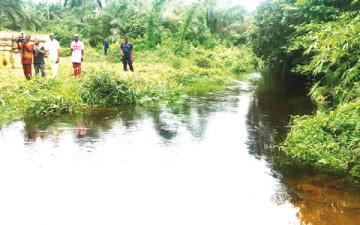Eight pupils, have drowned in the Atang River on their way back from a primary school at Ikot Abia-Enyie in the Nsit Atai Local Government Area of Akwa Ibom State.

The tragic incident happened when the victims were crossing over to the other side after a heavy rainfall which caused the river to overflow its bank.
A statement by the Chairman of the village council, Chief Etop Umanah, on Friday, July 24, 2015 said that the villagers usually wait for the pupils and women at the bank of the river after school closing hours each time it rained.
The pupils were already carried away by the river before some village men could get to the river to rescue them and their corpses were recovered three days later.
According to Punch, Umanah revealed that in 2014, three pupils and a pregnant woman died in the river, noting that the pupils were also coming back from school, while the pregnant woman was making her way back from the health centre.
He said, “This village, Abia-Enyie, lost the eight children to the Atang River as they were returning from school following a downpour which aided the river to overflow its bank. Last year, we lost three pupils and a pregnant woman in the same manner.
“The village is one village; it is split by this river. All the facilities of this village ─ a health centre, a primary and a secondary schools ─ are at the other side of the river. We cannot stop the children from going to school.”
The Commissioner for Rural Development, Mr. Ekong Sampson, said, “It pained the government to see Akwa Ibom children perishing in river.
“The government will soon embark on remedial measures to end the carnage before the construction of a link bridge will start.
“That is why I have chosen to come here. I am really touched by what I have seen.
“We will make every effort to ensure that infrastructure is brought to this community and to every other rural space in the state.
“The state government is committed to transforming our rural space because we all come from villages.
“The state government is committed to recreating the villages and making lives better for those who live in our villages.”







